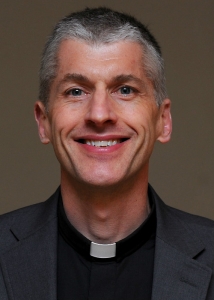 By Pastor Craig Pederson
By Pastor Craig Pederson
November 6 is Election Tuesday, bringing to fruition months (and in some cases, years) of hard work by candidates and their campaigns at the federal, state, and local levels. I acknowledge and appreciate this incredibly hard work that often goes unrecognized. As a democracy, we are strengthened when good people pursue public service as part of their gifts and calling.
Election Tuesday also brings to an end (mercifully, many will say!) the campaign ads that have increasingly inundated us on television, radio, social media, and print (where it still exists). We have come to expect this barrage of ads each election cycle, but this year’s assortment seems to have stepped it up a notch or two in terms of the negative tone and attack orientation of their content. This amplification of tone and stridency is likely the result of the increased polarization of political, ideological, and religious perspectives in our nation.
BUT THE UNITED STATES is not alone in grappling with these ramped up polarities. In the past week I read two articles highlighted the contrasting viewpoints that exist in Brazil following two consequential elections there. One is from the Lutheran World Federation about the first woman, Rev. Silvia Beatrice Genz, elected as president of the Lutheran Church in Brazil. The other is from the Associated Press about the controversial new president of Brazil, Jair Bolsonaro, who has a long history of offensive comments towards women, the LGBTQ community, indigenous and Black people, and foreigners.
Whether or not you choose to read these articles, the common thread is this: The Church of Jesus Christ is entering a new chapter in its calling to speak truth to power and to provide tools for people to engage with our differences – in our nation, and around the world.
“The Church of Jesus Christ is entering a new chapter in its calling to speak truth to power and to provide tools for people to engage with our differences.”
In his insightful new book A House United, theologian Allen Hilton describes how the Church’s unique scriptural and practical experiences with “difference” can provide a lens for us to navigate the current roiling cultural waters. He recounts the significance of the church’s presence at key cultural and political moments in our nation’s history. He then reminds us how the Bible, rather than providing an obstacle-free roadmap to religious and civic life, shows that the movement of God’s people comes out of differences and resolution of conflict.
Ultimately, Hilton argues that “uniformity” is not the sign of faithfulness within the body of Christ, but “unity” of purpose in sharing the love of Christ is the standard by which we can measure our witness.
IN A SEASON OF heightened divisions like the present one, we might ask, “Can I really make a difference?” As an individual Christian, and as Lutheran congregations, the answer is “yes!”
But how? Here are my humble suggestions:
- Pray!
- Vote!
- Visit! Visit with another Christian who you know holds a different political perspective than you. Visit another congregation that leans in a different theological direction than yours, and perhaps encourage your own congregation to develop a relationship with that one. As Hilton writes, “courageous conversations” such as these can lead to small but mighty progress and understanding within the body of Christ. We can even become a witness and example to the divisive culture in which we find ourselves.
“The Church’s unique scriptural and practical experiences with “difference” can provide a lens for us to navigate the current roiling cultural waters.”
Let us not throw our hands up in despair, but rather let us put our hands out to invite others who are different from us into relationship. Let us honor God by honoring the diversity of people and perspectives God created.
Lord, have mercy on us as we seek to become the healing and reconciling presence you call us to be!

